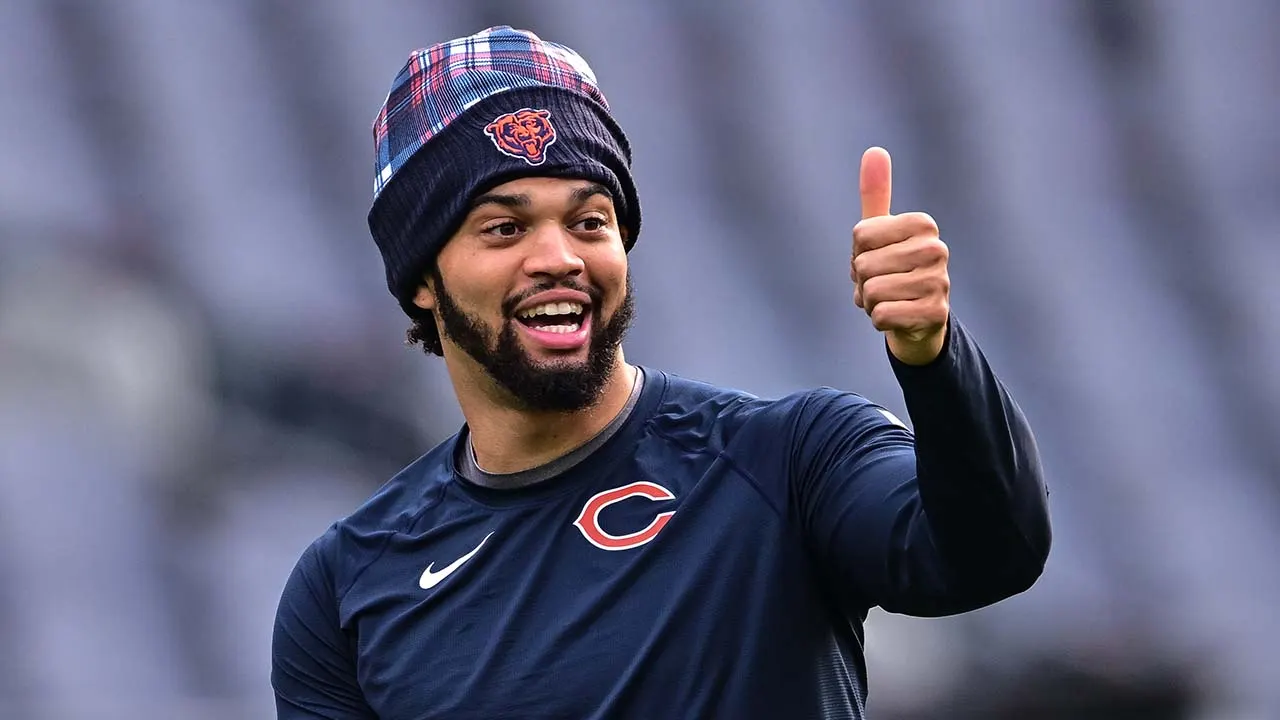In a stunning development that has reignited debates about player power and professionalism in the NFL, a new book has revealed that Chicago Bears quarterback Caleb Williams allegedly made attempts to avoid being drafted by the organization earlier this year. The revelation, which casts a different light on the 2024 NFL Draft and Williams’ public image, has already drawn strong criticism—most notably from former NFL quarterback and current analyst Boomer Esiason, who did not mince words when weighing in on the controversy.
According to the book, which details behind-the-scenes maneuvering in the lead-up to the 2024 draft, Williams and his inner circle explored ways to influence the selection process so he could avoid landing in Chicago. The tactics allegedly included subtle communication through his representation, private meetings where concerns about the Bears’ culture and management were voiced, and even strategic silence in certain pre-draft processes. Though Williams never publicly stated his preference to play elsewhere, the book suggests he was wary of the team’s direction and history of quarterback struggles—prompting what the author describes as “quiet resistance” to being the No. 1 overall pick.
The revelation has caused a stir among fans, pundits, and former players alike, with Boomer Esiason emerging as one of the most vocal critics. On his national radio show, Esiason blasted the young quarterback for what he described as “an entitled and short-sighted mindset,” emphasizing that rookies have a responsibility to embrace the team that chooses them and prove their value on the field, not through selective allegiance.
“This isn’t how it works,” Esiason said during a fiery segment. “You don’t get to manipulate the draft just because you don’t like the team at the top. If the Chicago Bears believe in you enough to make you the No. 1 overall pick, then you put on the helmet, you go to work, and you lead. Period. Anything else is selfish and damaging to the league.”
Esiason, who played 14 seasons in the NFL and knows firsthand the challenges of leading struggling franchises, argued that Williams should have viewed the opportunity as a challenge, not an obstacle. “Guys like Joe Burrow went to a two-win Bengals team and turned it around. Peyton Manning walked into a disaster in Indianapolis and built something great. That’s what franchise quarterbacks do. You don’t dodge responsibility—you take it head-on.”
Williams, considered one of the most talented quarterback prospects of the past decade, eventually accepted his draft selection with professionalism and enthusiasm, participating fully in rookie minicamp, team activities, and off-season preparations. Since being drafted, he’s been widely praised for his poise, intelligence, and command of the offense. However, the news from the book threatens to reframe the narrative of his entry into the NFL, raising questions about his mindset, maturity, and approach to adversity.
Supporters of Williams have pushed back on the backlash, arguing that his concerns were not unfounded. The Bears have a checkered history with developing quarterbacks and a reputation for dysfunction in leadership that predates the current regime. While general manager Ryan Poles and head coach Matt Eberflus have begun to reshape the organization, their track record was still in flux during the lead-up to the 2024 draft. For a player as invested in his career trajectory as Williams, skepticism about the fit was understandable, according to his defenders.
But Esiason dismissed such rationalizations as excuses. “Every team has warts. Every situation is tough. But greatness isn’t about finding the perfect landing spot—it’s about creating one. If you’re a true leader, you don’t look for a way out. You look for a way through.”
The timing of the controversy is particularly inconvenient for the Bears, who had just begun generating momentum with an energized fanbase and a revamped roster that includes new offensive weapons and a promising defensive unit. Williams had been heralded as the centerpiece of a new era in Chicago—a player with the arm talent, mobility, and football IQ to finally break the team’s long-standing quarterback curse. While his on-field performance remains unaffected, the perception of his commitment could be dented among fans already weary of false starts and short-lived hype.
In response to the story, the Bears organization declined to comment directly, instead releasing a brief statement reaffirming their belief in Williams and expressing excitement about the future. “Caleb Williams has shown nothing but dedication and professionalism since joining our team. We remain confident in his leadership and look forward to what we will accomplish together.”
Williams himself has not yet addressed the specifics of the book, but sources close to the quarterback suggest he was “disappointed” by how the narrative was framed, insisting that his concerns were always intended to be constructive and that he never considered refusing to play for the Bears outright. Still, the optics are challenging. The NFL is a league that values toughness—both physical and mental—and any suggestion of hesitancy or manipulation can damage a player’s reputation, particularly when it involves the quarterback position.
Whether the story has lasting impact will likely depend on what happens next. If Williams leads the Bears to victories, demonstrates resilience, and wins over the locker room and the fanbase, this episode could fade into a footnote. But if he struggles or the team falters, critics like Esiason will undoubtedly revisit the tale as a warning sign that was ignored.
For now, the spotlight is once again squarely on Caleb Williams—not for his throws, his stats, or his leadership on the field, but for the perception of his actions before he ever donned a Bears jersey. And in the NFL, where reputations are built not only on talent but also on character and grit, how he navigates this moment may matter almost as much as any touchdown pass he throws this season.



